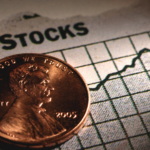Emotional spending arises when an individual spends money for the sole purpose of improving the mood. Some reasons people engage in emotional spending are to maybe relate an individual’s state to improve or maintain a mood, to cope with stress, to deal with loneliness, and to improve self-esteem.
Individuals sometimes use emotional spending to manage problems because they believe it is healthier than binge eating, alcohol or drugs. However, emotional spending can be as dangerous as alcohol or drugs. If care is not taken, emotional spending can lead to financial disaster. Emotional spending can lead to spending money on unnecessary purchases, which reduces the amount of money available for meaningful purchases or necessary savings. The problem with emotional spending is that it adds up and eventually spends more than needed to.

http://www.clintonstatebank.com/
How do you know if you are a chronic emotional spender? Some potential signs that you may experience such as you frequently feel depressed or anxious after spending and returning more items than you keep. In addition to that, you find yourself continually trying to justify your purchases to yourself or your spouse. Furthermore, you hide evidence of your spending (receipts, tags, bags, etc.) from your spouse or roommate and most importantly, you have things you have never worn or used that you forgot you bought!
If more than one of these describes fits your habits, it looks like your emotional spending needs to be nipped in the bud before you cause further damage to your bank account. After all, any money wasted on frivolous expenditures is less money that can go toward bills, savings, or other things of higher priority. Here are some tried-and-true techniques to minimize emotional spending.
The first step in dealing with emotional spending is to acknowledge that you are doing it. After that, try curbing your emotional spending by taking stock of what you own and calculating the cost of emotional spending on your finances. Have a budget and give yourself a regular spending allowance that will allow to you treat yourself in a controlled manner.
Another way of stopping emotional spending is to find something else to use as an emotional boost or stress reliever. Research healthy activities that make you feel better, like exercise, reading, etc. Though it takes a lot of self-control to kerb emotional spending, it’s worth it to avoid financial disaster.
Additional things that you can do are making sure that you unsubscribe from both print and digital mailing lists. The idea here is to get temptation out of your face. Identify your triggers and come up with alternative methods to deal with those emotions when they crop up (this, of course, may necessitate a therapist to help you go deeper into these issues). When it comes to the actual shipping, leave credit cards at home. You are less likely to spend if you must withdraw cash. How about online shopping, that basically we can access it at any time and easy to do? The advice is avoiding saving any credit card information on shopping sites. You are more likely to spend if it only takes one click. During the whole process, it is important to ask your spouse, family, and friends to help keep you accountable.
To further diffuse potential spending situations, ask yourself the following four questions before making a purchase:
- Did I intend to buy this particular item when I entered this store or clicked onto this website?
- Would I still buy this if I had to pay cash (and not use a credit card) to buy it?
- Would I have a hard time justifying this purchase to my spouse?
- Is this worth delaying the attainment of my goal (new car, vacation, etc.)?
If all else fails, take up the 24-hour rule by asking yourself, after waiting a full day, do I still really want this item?
Practice makes perfect, of course, but when consistently employed, these methods should become second nature. Once the discipline is honed, start putting every amount you are tempted to spend into a savings account. Seems reasonable to do, right?






